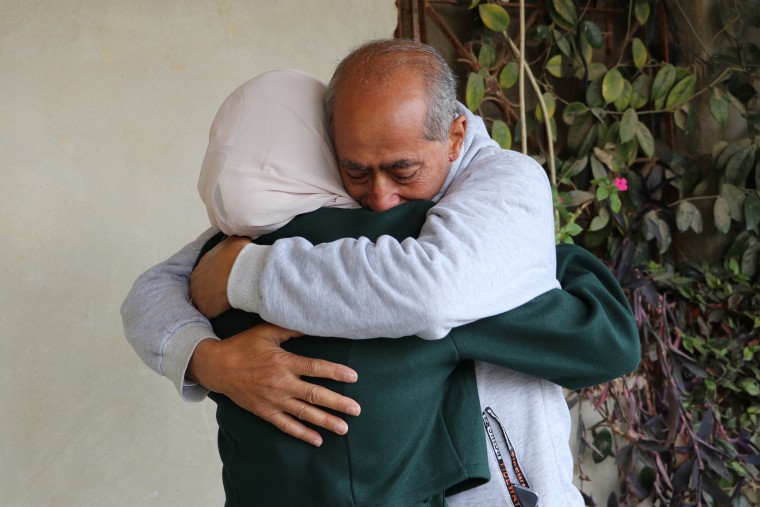Meanwhile, inside Israel, ultranationalist lawmakers have criticized the ceasefire and hostage release deal. Among them is Itamar Ben-Gvir, who resigned from his post as national security minister in protest.
He has objected to the fact that hundreds of Palestinian prisoners will be freed and argued that it leaves open the possibility of Hamas staying in power in Gaza, where health officials say more than 47,000 people been killed in the Israeli military offensive since Oct. 7, 2023, though researchers estimate the death toll is likely significantly higher.
Israel began its campaign after Hamas’ multipronged attacks on the country in which roughly 1,200 people were killed and around 250 were taken hostage, according to Israeli tallies.
Despite the objections of Ben-Gvir and some of his fellow lawmakers, the first three Israeli hostages — Romi Gonen, Doron Steinbrecher and Emily Damari, a dual British citizen — were freed last month in exchange for 90 Palestinian prisoners and detainees, all of whom were women and children under the age of 19.
All of them, including Amro were described as “terrorists” by Israel, a fact that came as little surprise to Sarit Michaeli, international outreach director for Jerusalem-based human rights organization B’Tselem, who said Israel used it as a blanket term to describe the freed Palestinians.
In general, she said, many people detained by Israel “haven’t been charged with any sort of violent offenses,” and “some have not been charged at all.”
On Jan. 25, four female Israeli soldiers Daniella Gilboa, Naama Levy, Karina Ariev and Liri Albag were also released in exchange for 200 Palestinian prisoners, some of whom were serving life sentences after being convicted of deadly attacks.
But while the truce between Israel and Hamas has held for more than a week in Gaza, the Israeli military has ramped up military activity in the occupied West Bank, launching a major operation in the northern city of Jenin last week.

The offensive began after President Donald Trump rescinded American sanctions on far-right Israeli settler groups and individuals accused of involvement in violence against Palestinians in the territory, in one of his first acts in office.
Israel has occupied the West Bank since the Six-Day War against its Arab neighbors, which saw the country seize the West Bank and east Jerusalem from Jordan and the Gaza Strip from Egypt.
Since then, it has built and expanded Jewish settlements in the West Bank. Most countries deem them illegal under international law, a position disputed by Israel, which sees the territory as a security bulwark. In 2019, the first Trump administration abandoned the long-held U.S. position that the settlements are illegal before it was restored by his successor, Joe Biden.
Muted celebrations
Before she was released on Jan. 20, Amro’s family waited for hours in the cold at a rendezvous point for the freed prisoners.
Her younger sister Boshara said she “couldn’t describe the feeling” of having her sister home. In a voice note before Amro was released, Boshara said she was “like a mother to me, in her kindness and in everything she does.”